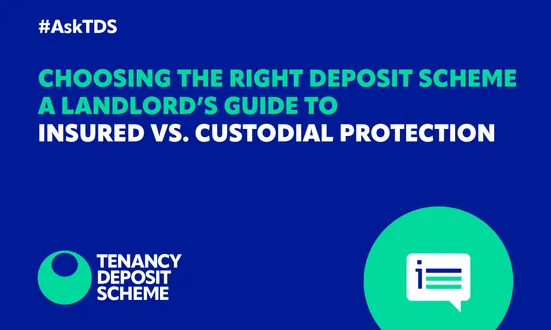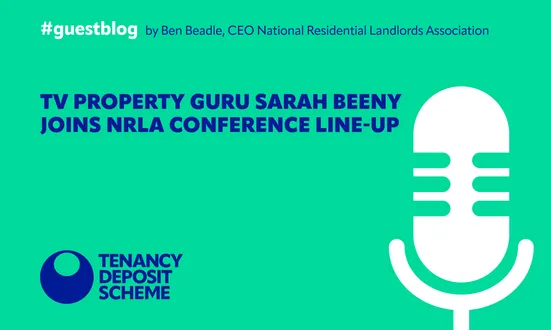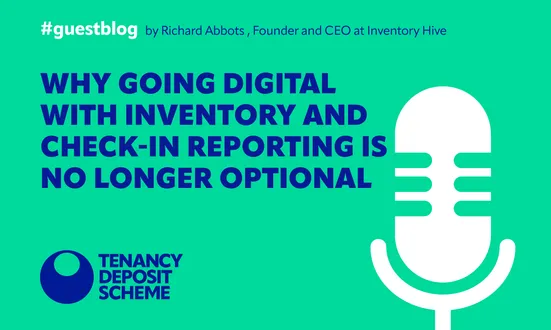With the Government’s Making Tax Digital scheme is due to start its roll out to landlords next year, the NRLA has published a new guide outlining everything you need to know. Chief Executive Ben Beadle explains more.
The rolling Making Tax Digital programme, which has already been introduced to all VAT-registered businesses, is being extended to Self-Assessment taxpayers – including many landlords – within the coming years, impacting most landlords with rental or other relevant income of more than £20,000 pa.
Those whose earnings are on the higher end of the scale will be affected soonest, from April next year, with anyone with a ‘qualifying income’ of more £50,000 impacted.
With this in mind, we have created a comprehensive new guide, outlining everything you need to know to prepare for change, from compliance dates and eligibility to making sure you have the right software to submit your records.
Our award-winning Training Academy has also launched a new Making Tax Digital course for those of you wanting to get ahead of the game
What exactly is Making Tax Digital?
Making Tax Digital is a government scheme being introduced in a bid to modernise the tax system, which will require individuals and businesses to keep and submit records of their property income and allowable expenses digitally.
If you fall under the remit of the scheme, you will soon need to use special software that is Making Tax Digital-compatible to file your tax return digitally.
In what is one of the biggest changes, you will also need to submit quarterly updates – rather than the single annual return that is standard at present – with deadlines for submission on the 7th of May, August, November and February each year.
An additional, final declaration, similar to the current Self-Assessment return, including any non-business income, will then need to be submitted by the current 31st Jan deadline to confirm the accuracy of your submissions, and to allow you to claim any allowances or reliefs.
?This end of year declaration must also be sent to HM Revenue and Customs (HMRC) via the new software – with submission by any other means soon to be banned.
Publicising the scheme the Government says the changes will ‘streamline and simplify’ the existing process, saving landlords time and money. It will also save HMRC money, with the current process costing them approximately £10 billion a year.
What counts as income?
Your qualifying income is the total income you get from self-employment and property per tax year, before you deduct expenses. Other income, including PAYE, pensions, and dividends does not count towards your qualifying income.
When will I be affected?
The date from which you need to start using Making Tax Digital (MTD) depends on your qualifying income – as described above.
All landlords who earn more than £20,000 a year from their properties and pay tax via Self-Assessment will be affected, with the compliance dates depending on that income.
- From 2026: Landlords with annual income of £50,000 or more must comply.
- From 2027: Landlords with annual income of £30,000 or more annually.
- From 2028: Landlords with annual income of £20,000 or more annually.
The changes will come into force on 6 April in each of these years.
What if I get it wrong?
As part of the plans, HMRC is increasing penalties for late submissions and payments, emphasising the importance of submitting returns properly and on time, although details of the fines have yet to be made public.
Are there any exemptions?
In short, yes there are, but, at present only in very specific circumstances. While they are still being finalised in terms of legislation they are set to include:
- Customers who have a Power of Attorney.
- Customers for whom HMRC cannot provide a digital service.
What do I need to do to prepare?
Our new online guide will walk you through what you need to do on a step-by-step basis including your eligibility, how to register and a checklist when it comes to selecting software that is compatible with the Making Tax Digital system. To access the guidance, click here.
Offering all this and more, our new Making Tax Digital course will help you smoothly manage transition to Making Tax Digital, whether a landlord or an agent and will include common challenges and solutions when it comes to navigating the switchover, as well as how to approach the change if you have more complex financial arrangements. For more information and to book your place click here.
And last, but by no means least, NRLA Portfolio, our exclusive property management platform, is preparing to launch its exciting new Portfolio+ add on, so make sure you’re Making Tax Digital ready, by uploading your properties to Portfolio today.
For all the latest on this, and other landlord issues, be sure to subscribe to our weekly enewsletter and follow us on social media.
Exclusive savings for TDS and NRLA customers
Register your deposits with The Tenancy Deposit Scheme and become an NRLA member to SAVE 33% on TDS Insured and enjoy £15 OFF NRLA membership. Click here to join today.

About the author

Ben Beadle is chief executive of the National Residential Landlords Association (NRLA), the UK’s largest trade body for landlords.
A landlord himself since the age of 20, Ben started out as property manager before working his way up through the ranks at the Tenancy Deposit Scheme.
He was then Operations Director at property management business Touchstone before overseeing the merger of the National Residential Landlords Association (NLA) and Residential Landlords Association (RLA) to create the new trade body earlier this year.
His key aims as head of the organisation are to strengthen the voice of landlords in Westminster and Cardiff, to improve the reputation of landlords in the media and to support members through information, training and accreditation.
NRLA: The NRLA updates landlords on all the latest legislation changes affecting the sector and offers expert advice, training and other exclusive services and benefits.
The views expressed in this content are solely those of the author alone and do not necessarily represent the views of TDS, its officers, or employees. To read more on TDS views, visit our Policies & Procedures webpage
Other news stories


